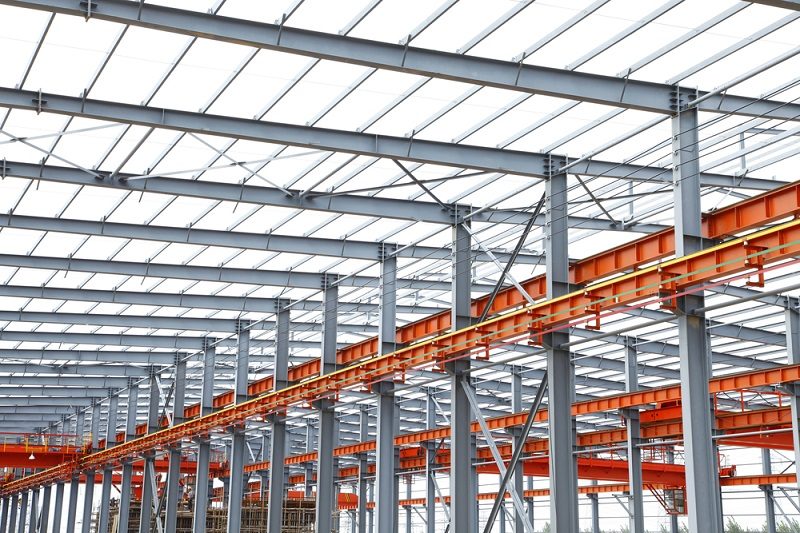The Ultimate Manual on Custom Steel Fabrication Solutions for Structural Projects
In the realm of structural tasks, the significance of customized steel fabrication remedies can not be overstated. From the foundational understanding of steel construction basics to the complex process of selecting one of the most appropriate materials, every action in this journey plays an essential function in the best success of a project. As we browse with the complexities of style considerations, manufacture processes, and quality assurance steps, a comprehensive manual acts as a directing light for experts looking for excellence in steel manufacture services. Stay tuned to reveal the understandings that can transform the method structural tasks are approached and implemented.
Understanding Custom Steel Construction Essentials
Looking into the fundamentals of custom-made steel fabrication gives understanding right into the elaborate process of transforming raw steel right into tailored architectural elements. Custom-made steel construction is a specific manufacturing technique that involves cutting, shaping, and putting together steel products to develop one-of-a-kind structures according to details task demands. Recognizing the basics of personalized steel manufacture is important for making sure the effective execution of architectural tasks.
The process typically begins with the assessment of project specs and style requirements. This preliminary stage involves comprehensive preparation and partnership between fabricators, developers, and engineers to determine the most ideal strategy for producing the steel parts. Accuracy is vital throughout the manufacture procedure, as even minor discrepancies can affect the architectural integrity of the end product.
Numerous methods, such as cutting, welding, and shaping, are employed to transform raw steel into the wanted structural aspects. Skilled producers utilize advanced equipment and devices to make sure precision and consistency throughout the manufacture procedure. Quality control steps are executed to verify the integrity of the produced elements before they are set up on-site, guaranteeing conformity with industry criteria and project requirements.
Selecting the Right Steel Materials

Firstly, the kind of structural job and its details demands play a vital duty in establishing one of the most appropriate steel products. Elements such as the load-bearing ability, environmental problems, and desired life expectancy of the structure will determine the grade and kind of steel that should be utilized.
Additionally, the physical buildings of the steel, including ductility, stamina, and weldability, need to align with the project's requirements to guarantee optimum efficiency and sturdiness (steel fixing). Additionally, factors to consider such as corrosion resistance, cost-effectiveness, and availability of the steel materials ought to additionally be thought about during the option procedure
Style Considerations for Structural Projects
Structural projects require thorough attention to develop factors to consider to ensure both capability and safety are prioritized throughout the construction process. When it comes to designing architectural tasks, a number of crucial variables have to i thought about this be taken right into account to guarantee the success of the undertaking. By very carefully considering these aspects throughout the style stage, engineers and architects can ensure the architectural task's success from perception to conclusion.
Improving Manufacture Processes for Performance

Moreover, executing lean production principles can dramatically boost efficiency in steel construction. By lessening waste, optimizing process, and enhancing communication between various groups entailed in the manufacture process, tasks can be finished extra quickly and with greater quality requirements.
Furthermore, developing an efficient production timetable and workflow can aid in focusing on tasks, appointing resources efficiently, and conference job deadlines quickly. By having a clear strategy in position and consistently monitoring progression, any possible traffic jams or delays can be recognized and addressed quickly, ensuring smooth and efficient manufacture processes for structural projects.
Quality Assurance and Job Monitoring in Steel Manufacture
To make certain the successful execution of steel construction projects, thorough quality assurance steps and effective job monitoring practices are necessary parts in preserving accuracy and conference client assumptions. Quality assurance in steel manufacture entails extensive examinations at different stages of the fabrication process to validate compliance with project requirements and market requirements. This consists of material testing, dimensional checks, and weld inspections to guarantee structural stability and safety.
Task management plays an important role in coordinating the various elements of steel fabrication jobs, such as organizing, resource appropriation, and communication amongst employee. A well-defined job plan with clear purposes, landmarks, and timelines assists to keep track of progression and resolve any potential concerns proactively. Effective interaction between all stakeholders, consisting of customers, designers, contractors, and producers, is crucial for guaranteeing that the job proceeds efficiently and fulfills the preferred high quality criteria.
Conclusion
Finally, custom-made steel fabrication plays a crucial function in architectural projects by providing tailored options utilizing the best products and layout considerations. Performance in manufacture processes, quality assurance, and reliable task management are crucial for successful outcomes. By comprehending the basics of customized steel construction and carrying out structured procedures, project groups can supply high-grade and resilient structures that fulfill the details demands of their clients.
Custom steel construction is a specialized manufacturing strategy that includes cutting, shaping, and putting together steel materials to develop one-of-a-kind frameworks according to particular task demands.To make certain the successful implementation of steel manufacture projects, careful top quality control actions and effective task administration methods you can try here are crucial elements in preserving accuracy and conference client expectations. Quality control in steel fabrication includes strenuous examinations at numerous stages of the construction procedure to verify compliance with job specifications and sector criteria (metal fabrication melbourne).Job administration plays an important function in coordinating why not try this out the numerous aspects of steel fabrication jobs, such as scheduling, resource allocation, and interaction amongst group members.In verdict, customized steel construction plays a critical function in structural projects by providing customized options utilizing the ideal materials and layout factors to consider
 Robert Downey Jr. Then & Now!
Robert Downey Jr. Then & Now! Michelle Trachtenberg Then & Now!
Michelle Trachtenberg Then & Now! Barbi Benton Then & Now!
Barbi Benton Then & Now! Robin McGraw Then & Now!
Robin McGraw Then & Now! Kerri Strug Then & Now!
Kerri Strug Then & Now!